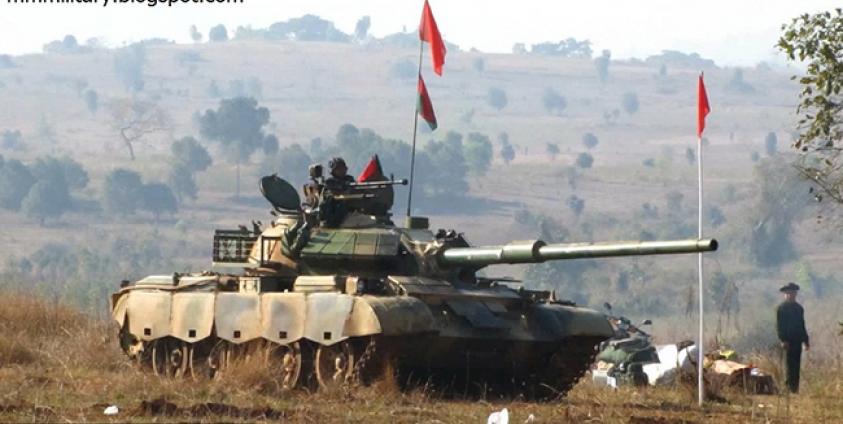People living in northern Shan State say they don’t expect much from the Burma Army’s latest extension of its unilateral ceasefire, as clashes in the region continue unabated.
“I think the clashes are still intensifying in northern Shan State, and I don’t think the unilateral ceasefire will do anything to change that,” said Mine Mai, the spokesperson for the Humanitarian Strategic Team-Northern Shan State (HST-NSS), a local relief group.
“Even if the army extends its unilateral ceasefire, it won’t do anything if they don’t stop their military offensives. If there are military offensive operations, opposition groups will make defensive operations,” Lway Chee Sangar, the spokesperson for the Ta’ang Women’s Organization, told NMG.
The ceasefire, which was set to expire on Saturday, will now be in place for another three weeks, despite ongoing fighting between the Burma Army and three ethnic armed groups from the non-ceasefire Northern Alliance.
Maj. Mai Aik Kyaw, who is in charge of the information department of the Ta’ang National Liberation Army (TNLA), said that the Burma Army clashed with the TNLA and two of its Northern Alliance partners, the Arakan Army (AA) and the Myanmar National Democratic Army (MNDAA), at six locations in Kutkai, Namkham and Mong Meik townships on Sunday.
Some groups said that the Burma Army’s practice of selectively declaring ceasefires in one part of the country while continuing to fight in other areas would not do much to bring lasting peace.
“They need to declare a ceasefire across the country. Now their unilateral ceasefire doesn’t cover Rakhine State, so we can’t say it’s a real peace. Clashes stop in some places but continue in others. We want to see an all-inclusive ceasefire. Then implementation of the peace process will be more effective,” said Lway Chee Sangar.
On August 31, the office of the armed forces commander-in-chief reported that the Burma Army would stop all military movements in its northern, northeastern, eastern, east-central and triangle regional military commands until September 21 to allow “all stakeholders to move the peace process forward, develop the social and economic life of all people, and commit to building a lasting peace in the country.”
Meanwhile, clashes continue along the national highway between Kutkai and Muse in northern Shan State. Local people say they still have problems travelling in the area. They said that large trucks with tires punctured by the various armed groups are blocking the highway.
A joint force of troops from the AA, MNDAA and TNLA attacked the Defense Service’s Technological Academy in Pyin Oo Lwin and army and police camps in northern Shan State on August 15. Since then, there have been intense clashes in many places in the area.
At least 16 civilians had been killed and nearly 30 injured since the fighting began. Civil society organizations operating in the area say that local people have faced human rights abuses because of the situation.
Burma Army and Northern Alliance forces clashed at several locations in and around Kutkai on Sunday. In one incident, an artillery shell that landed on a house in a village just outside the town killed five civilians, including three children and two women.







